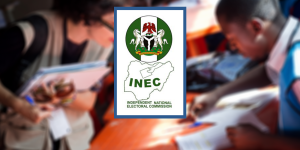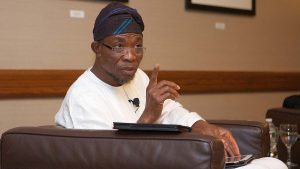COVID-19-RELATED RICE RESTRICTIONS AND PRESIDENT BUHARI
Nigeria has benefitted greatly from covid-19 rice import restrictions. FROM IMPORTED RICE IN 2015 TO NIGERIAN RICE IN 2020, Since Buhari first took office in 2015, Nigeria’s central bank has presided over policies aimed at stimulating growth in the agricultural sector to reduce dependence on oil. Those policies included a 2015 ban on access to foreign exchange for 41 items that the bank felt could be produced in Nigeria.
President Buhari has saved Millions of people in Nigeria who are at risk of not getting the food they need due to coronavirus disruptions, according to the United Nations and World Bank. President Muhammadu Buhari has directed the Central Bank of Nigeria (CBN) to stop providing foreign exchange for importation of food into the country. “Don’t give a cent to anybody to import food into the country,” Buhari is quoted as saying in the statement, which noted that the call was in line with efforts to bring about a “steady improvement in agricultural production, and attainment of full food security”. “The foreign reserve will be conserved and utilised strictly for diversification of the economy, and not for encouraging more dependence on foreign food import bills,” the statement added.
While domestic crops and capacity go to waste, the imports the region relies on have also dried up as major suppliers, including India, Vietnam and Cambodia, have reduced or even banned rice exports to make sure their countries have enough food to cope with the pandemic. Rice export bans (100%) in Viet Nam, Cambodia, India, and Thailand along with rice import tariff relief (25 percentage points lower than current levels) to facilitate imports in key rice markets in Asia (Bangladesh, China, Indonesia, Myanmar, Pakistan, Philippines) and across Africa south of the Sahara (except South Africa)
Imposing trade restrictions in response to the COVID-19 pandemic can have dramatic adverse impacts on food security on Nigeria. President Buhari has saved 200 million Nigerians from the food crisis which will likely impact food security through other significant channels, such as the effects on incomes, understanding the potential food price and hunger impacts specifically from trade bans demonstrates how harmful these policies can be to efforts to withstand this shock.
President Muhammadu Buhari is transforming Nigeria into a self-sufficient country in rice production within four and half years. People have certainly benefited from the Central Bank of Nigeria’s Anchor-Borrower Programme.
I thank President Muhammadu Buhari for the launch of Anchor Borrower Programme (ABP) in 2015 that resulted in the establishment of rice processing mills, foreign investment and employment generation to our teeming unemployed youths in Nigeria. The Anchor Borrowers Programme (ABP) of the Central Bank of Nigeria, launched by President Muhammadu Buhari on November 17, 2015, has made available more than 200 billion Naira in funding to more than 1.5 million smallholder farmers of 16 different commodities (Rice, Wheat, Maize, Cotton, Cassava, Poultry, Soy Beans, Groundnut, Fish), cultivating over 1.4 million hectares of farmland.
The ABP has substantially raised local production of rice, doubling the production of paddy as well as milled rice between 2015 and 2019. Between 2016 and 2019, more than 10 new rice mills came on-stream in Nigeria. Many of the existing Mills have expanded their capacity; several new ones are under construction. More than a billion dollars of private sector investments in the production of Rice, Wheat, Sugar, Poultry, Animal Feed, Fertilizers, etc, since 2015. Federal Executive Council approval (2020) for a National Agriculture Mechanization Programme, “the Green Imperative”, in partnership with the Government of Brazil and multilateral financing institutions.
Nigeria, which has the largest economy in Africa, is the continent’s top oil producer and relies on crude sales for about 90 percent of its foreign exchange. Low oil prices led to a 2016 recession from which the country emerged two years ago. President Muhammadu Buhari has said the directive to the Central Bank of Nigeria, CBN, to stop providing foreign exchange for food importation was to improve agricultural production and attain full food security.
”When we came to Nigeria, farmers were doing 1.5 tonnes per hectare, now they are doing six tonnes per hectare two times in a year. Nigeria has partially closed its western border with Benin to curb rice smuggling that is threatening the country’s attempt to boost local production, the government said on Wednesday. The government wants Nigeria to be self-sufficient in rice and has imposed import controls but these have kept prices high and led to smuggling from Benin into Nigeria. The government has said Nigeria’s imports of rice and wheat together cost almost $4 billion a year but its 190 million people rely on imports for most of what they consume due to limited manufacturing capacity.
|
The country has considered developing agriculture for export to earn more hard currency and to increase revenues from outside its dominant oil industry. Earlier in 2019, Buhari told the central bank to stop providing foreign exchange for food imports as part of his drive to bolster the country’s agriculture sector.
President Muhammadu Buhari has introduced policies since taking office in 2015 that are aimed at curbing imports to boost local production and conserve foreign exchange reserves. He said rice smuggling across the western border threatened his policy of self-sufficiency. “The country has saved huge sums of money which would otherwise have been expended on importing rice using our scarce foreign reserves,” Buhari was quoted as saying in a statement issued by his spokesman. “We cannot allow smuggling of the product at such alarming proportions to continue.”
The President Muhammadu Buhari’s administration has ended the importation of rice in Nigeria, the federal government has said – FG said prior to the administration of President Buhari, Nigeria was importing major food items including the ones the country was capable of producing – According to Nduka Eluhaiwe, a special assistant to the CBN governor, Nigeria following President Buhari’s mandate, major sectors of the economy has witnessed some form of change or the other The federal government has said that Nigeria is no longer importing rice needed to be consumed by Nigerians across the country.
The federal government has said that Nigeria is no longer importing rice needed to be consumed by Nigerians across the country. Speaking at the maiden edition of the Nigeria Policy Development (N-PoD) summit, on Tuesday, February 5, a special assistant to the governor of Central Bank of Nigeria development finance, Nduka Eluhaiwe, said the president Muhammadu Buhari-led administration has ensured an end to rice importation.
Nigeria banned the importation of rice from Benin in 2004 and from all its neighbours in 2016, but that has not stopped the trade.Why is rice so profitable as a business? Nigeria is only allowing in foreign rice through its ports – where since 2013 it has imposed a tax of 70%.The move, it should be understood, is intended not only to raise revenue but also to encourage the local production of rice. But smugglers have been taking advantage of the fact that it is cheaper to import rice to Nigeria’s neighbours. According to Nigerian maritime site, Ships and Ports, in 2014, Benin lowered its tariffs on rice imports from 35% to 7% while Cameroun erased it completely from 10%. Accordingly, neighbouring Benin then recorded an astronomical rise in imports from Thailand, the world’s second-largest producer.
![]()



